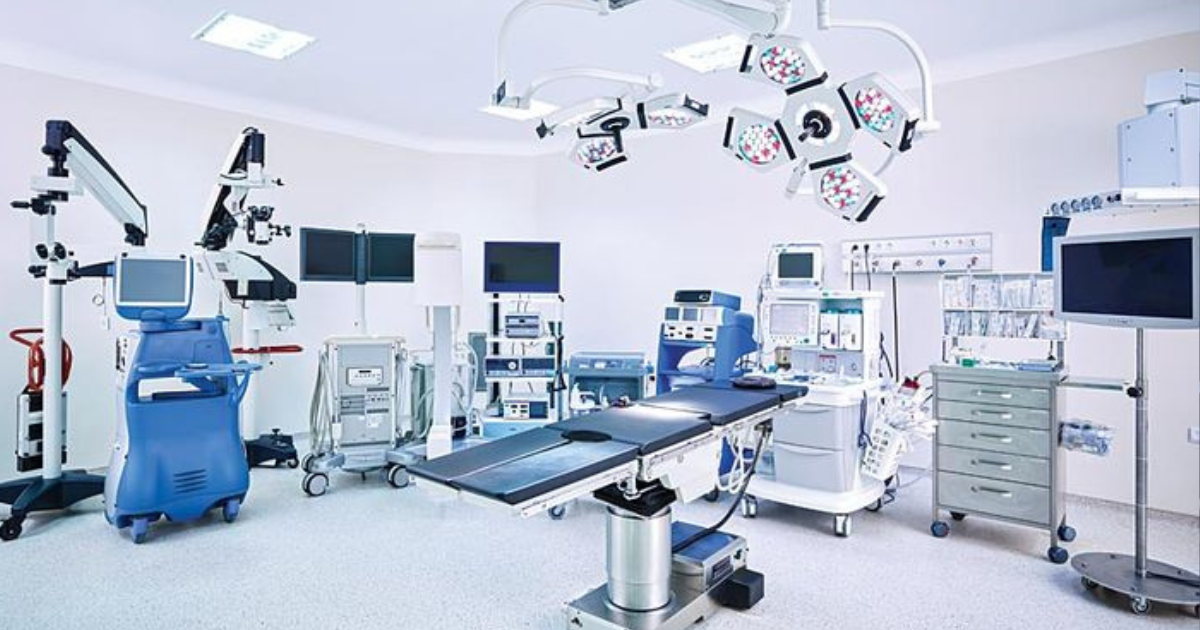
Why Regular Diagnostic Check-ups at Novocare Hospital Are Essential for Your Health
September 12, 2025
Everything You Need to Know About Novocare’s Diagnostic Imaging Services
September 12, 2025Introduction
Early detection is a cornerstone of modern healthcare. Many serious health conditions develop silently, with symptoms appearing only at advanced stages. Detecting these illnesses early can dramatically improve outcomes, reduce treatment complexity, and even save lives.
At Novocare Hospital, a range of advanced diagnostic tools is used to identify health problems before they become critical. From laboratory tests to high-end imaging, Novocare provides comprehensive, patient-focused services that empower people to take control of their health.
This article explores the importance of early detection, the diagnostic tools Novocare offers, and how these tools contribute to life-saving healthcare interventions.
1. Why Early Detection Matters
Early detection is not merely a preventive strategy—it’s a life-saving intervention. Many diseases, such as cancer, heart disease, diabetes, and kidney disorders, may remain undetected until they reach a critical stage.
Key Advantages of Early Detection
- Increased Survival Rates: Early diagnosis improves chances of successful treatment.
- Less Aggressive Treatment: Conditions identified early often require simpler interventions.
- Reduced Complications: Prevents irreversible damage to organs or systems.
- Cost-Effective Healthcare: Early treatment is usually less expensive than managing advanced disease.
- Peace of Mind: Monitoring health reduces stress and uncertainty about one’s condition.
Studies show that early cancer detection can increase survival rates by up to 90% in certain types. Similarly, early diagnosis of heart disease allows interventions that prevent fatal cardiac events.
2. Conditions That Benefit from Early Detection
At Novocare, diagnostic tools help identify a wide range of conditions early, enabling timely treatment.
| Condition | Diagnostic Tool | Importance of Early Detection |
|---|---|---|
| Breast Cancer | Mammography, Ultrasound | Tumors detected early have higher treatment success |
| Heart Disease | ECG, Echocardiography, Stress Test | Prevents heart attacks and reduces mortality |
| Diabetes | Blood Sugar, HbA1c | Avoids complications such as neuropathy, kidney damage |
| Kidney Disease | Kidney Function Tests, Ultrasound | Prevents progression to chronic kidney disease |
| Liver Disease | Liver Function Tests, Imaging | Enables timely treatment and monitoring |
| Oral Health Issues | OPG X-ray | Detects cysts, tumors, and misalignment early |
| Osteoporosis | Bone Density Scan | Prevents fractures and mobility issues |
| Thyroid Disorders | TSH, Ultrasound | Early hormone regulation avoids complications |
Insight: Early detection allows healthcare providers to design personalized treatment plans tailored to each patient’s needs.
3. Novocare’s Diagnostic Tools
Novocare combines state-of-the-art technology with expert medical staff to provide a comprehensive diagnostic framework.
3.1 Laboratory Services
Laboratory tests are often the first step in early detection, providing critical biochemical information:
- Blood Tests: Complete Blood Count (CBC), lipid profile, glucose, thyroid function, liver enzymes.
- Urine Analysis: Detects kidney function issues, infections, and systemic diseases.
- Biochemistry and Immunology: Monitors metabolic disorders and autoimmune diseases.
- Microbiology and Pathology: Identifies infections, inflammatory conditions, and early-stage malignancies.
These tests provide data-driven insights into a patient’s health, enabling targeted intervention.
3.2 Imaging Services
Modern imaging is indispensable for early detection:
- X-Rays & Mobile X-Rays: Evaluate bones, chest, and dental structures.
- CT Scans: Detect organ abnormalities, tumors, and internal injuries with precision.
- MRI: Provides high-resolution images of soft tissues and the nervous system.
- Ultrasound: Non-invasive, safe monitoring of organs, pregnancy, and soft tissue conditions.
- Mammography: Early detection of breast abnormalities.
- OPG Dental X-rays: Panoramic dental imaging to detect cysts, tumors, and structural issues.
3.3 Specialist Consultations
After testing, Novocare’s multidisciplinary specialists interpret results, ensuring:
- Accurate diagnosis
- Effective treatment planning
- Personalized care and follow-up
Patient-Centered Approach: Novocare emphasizes comfort, efficiency, and timely results, reducing stress for patients.
4. The Life-Saving Impact of Early Detection
Early detection transforms patient outcomes across multiple domains:
- Cancer: Early-stage cancers are far more treatable, sometimes requiring less invasive procedures.
- Cardiovascular Health: Early identification of high blood pressure, cholesterol, or structural heart problems prevents heart attacks and strokes.
- Diabetes Management: Early diagnosis reduces risk of kidney failure, neuropathy, and vision loss.
- Oral Health: Detects jaw or tooth issues early, preventing infections and bone damage.
- Pregnancy & Maternal Health: Monitors fetal development and maternal complications, reducing perinatal risks.
5. Preparing for Early Detection Screenings
Proper preparation ensures accurate results:
- Fasting Requirements: Some blood tests require fasting for 8–12 hours.
- Bring Previous Reports: Enables trend analysis and accurate comparison.
- Medication Disclosure: Inform staff of any prescriptions or supplements.
- Hydration: Adequate water intake unless fasting is required.
- Comfortable Clothing: Facilitates physical exams and imaging procedures.
6. Recommended Frequency of Screenings
| Age Group | Suggested Screenings |
|---|---|
| 20–39 | Physical exam, blood pressure, BMI, basic lab tests, dental check-up |
| 40–59 | Blood sugar, cholesterol, ECG, mammography, colon screening, ultrasound |
| 60+ | Comprehensive labs, cardiac imaging, bone density, cancer screening, MRI/CT as required |
| High-Risk | Personalized schedule based on family history, lifestyle, or prior conditions |
Tip: Patients with family history of chronic diseases or genetic predispositions may require more frequent screenings.
7. Common FAQs About Early Detection
Q1: Can early detection really prevent life-threatening illness?
A1: Yes. Timely diagnosis allows treatment before complications arise.
Q2: Are Novocare’s diagnostic tests safe?
A2: Absolutely. All procedures use low-radiation, non-invasive, and patient-friendly methods.
Q3: How soon will I get my results?
A3: Digital results are typically available within hours or days, depending on tests.
Q4: Are these tests expensive?
A4: Costs vary by test, but early detection reduces the expense of treating advanced disease.
Q5: Is early detection only for older adults?
A5: No. Adults of all ages benefit, and high-risk children may also require screening.
Q6: Will my results be shared with my doctor?
A6: Yes. Novocare ensures seamless communication with primary physicians and specialists.
Q7: How often should I undergo mammography?
A7: Women over 40 are recommended to have annual or biennial mammograms; Novocare tailors schedules individually.
Q8: What about radiation exposure?
A8: Novocare uses advanced, low-dose imaging techniques to minimize exposure.
Q9: Can early detection identify hidden chronic diseases?
A9: Yes. Lab and imaging tests can reveal asymptomatic conditions like hypertension, kidney disease, and liver disorders.
Q10: How do I schedule an early detection check-up at Novocare?
A10: Patients can book online or call Novocare directly for consultation and scheduling.
8. Integrating Early Detection Into Daily Life
- Schedule regular health screenings as per doctor recommendations.
- Maintain balanced nutrition, exercise, and proper sleep.
- Avoid tobacco, excessive alcohol, and other harmful habits.
- Track health metrics and monitor results over time.
- Educate yourself about early warning signs of common diseases.
Pro Tip: Combining early detection with healthy lifestyle practices ensures optimal long-term outcomes.
9. Real-Life Impact
Case Example 1: A 45-year-old woman underwent a routine mammogram at Novocare. Early detection revealed a small breast tumor, which was successfully treated through minimally invasive surgery.
Case Example 2: A 50-year-old man had a routine cardiac screening. An early arrhythmia was identified and managed with medication and lifestyle adjustments, preventing a potential heart attack.
These examples illustrate the life-saving potential of Novocare’s early detection services.
Conclusion
Early detection is not optional—it’s essential for saving lives, improving outcomes, and promoting long-term wellness.
At Novocare Hospital, patients have access to advanced diagnostic tools, skilled specialists, and a patient-focused care approach, ensuring health issues are detected promptly.
By committing to regular screenings and check-ups, you can:
- Detect diseases before symptoms appear
- Access timely and effective treatment
- Reduce risk of complications
- Take control of your health proactively
Novocare’s mission is to empower patients with knowledge and tools for early detection, because the sooner you know, the more lives can be saved.


